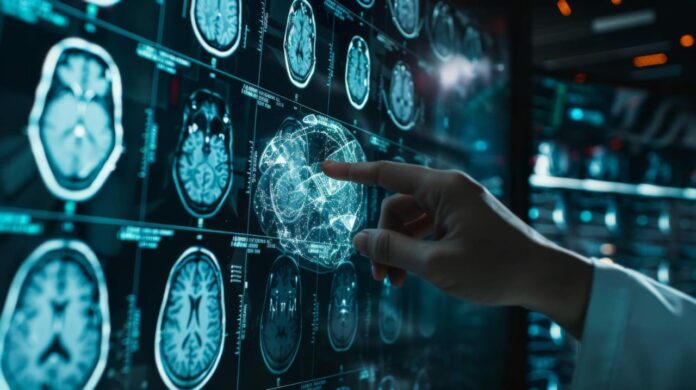A study with over 13,000 participants discovered common blood vessel changes in the brain linked to stroke and dementia risk, even in people with heart conditions who haven’t had a stroke. It is the most excellent review of these hidden brain abnormalities in heart patients and was published in Neurology®. Lead author Dr. Zien Zhou of The George Institute for Global Health thinks that identifying these alterations could aid in selecting more appropriate therapies for these individuals.
Lead author Dr. Zien Zhou from The George Institute for Global Health said, “Although people with heart disease are two to three times more likely than the general population to have changes in their brain’s vascular system, they’re often overlooked because these patients don’t routinely undergo brain imaging unless they have suffered a stroke.”
Only brain imaging can identify abnormalities in brain blood vessels associated with cerebral small vessel disease (CSVD) and silent brain infarction (SBI). Older folks and those with high blood pressure are more likely to experience them. Even though they don’t have overt symptoms, they might induce subtle neurological problems and raise the chance of dementia or stroke in the future.
To find out how often these hidden brain changes occur in adults with conditions like atrial fibrillation, coronary artery disease, and heart failure, researchers from the George Institute analyzed 221 studies published between 1988 and 2022.
According to the study, among those who have cardiac disease:
- A third of them suffered from silent brain infarctions (SBI).
- One-quarter exhibited lacunes, which are tiny, empty areas in the brain left behind by trauma.
- White matter lesions, a sign of injury to nerve fibers, were seen in two-thirds.
- Brain tissue microbleeds were present in 25% of cases.
- More than half experienced atrophy, or shrinkage of the brain.
These changes were similar whether or not the person had recently had a stroke, and there were no differences between both the genders. Dr. Zhou noted that heart disease is a significant cause of these brain changes, which reflect brain frailty.
Dr. Zhou suggested that a decrease in cardiac output in some heart disease patients could affect blood flow to the brain, leading to vascular changes and cognitive issues. He also noted that hidden brain changes and cognitive problems could be due to small blood clots traveling from the heart to the brain.
More studies are required to manage individuals affected by these brain abnormalities and determine their causes. To reduce side effects, Dr. Zhou suggested investigating whether it might be worthwhile for anyone contemplating anticoagulant therapy—which many patients with heart disease require—to obtain a second MRI.
Understanding the risks of brain clots and bleeding from anticoagulants could help choose the best treatment for people with heart disease, making their treatment safer.
The study highlights that many people with heart disease have hidden changes in their brains. It shows how important it is for them to have thorough brain imaging tests. Knowing why these changes happen and what they mean is essential for finding the best ways to safely manage and treat heart disease.
Journal reference:
- Zien Zhou, Shoujiang You, et al., Covert Cerebrovascular Changes in People With Heart Disease. Neurology. DOI: 10.1212/WNL.0000000000209204.
